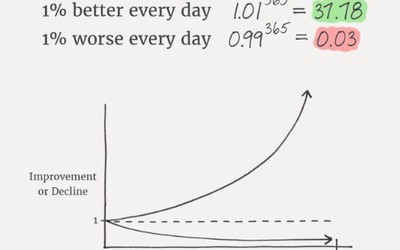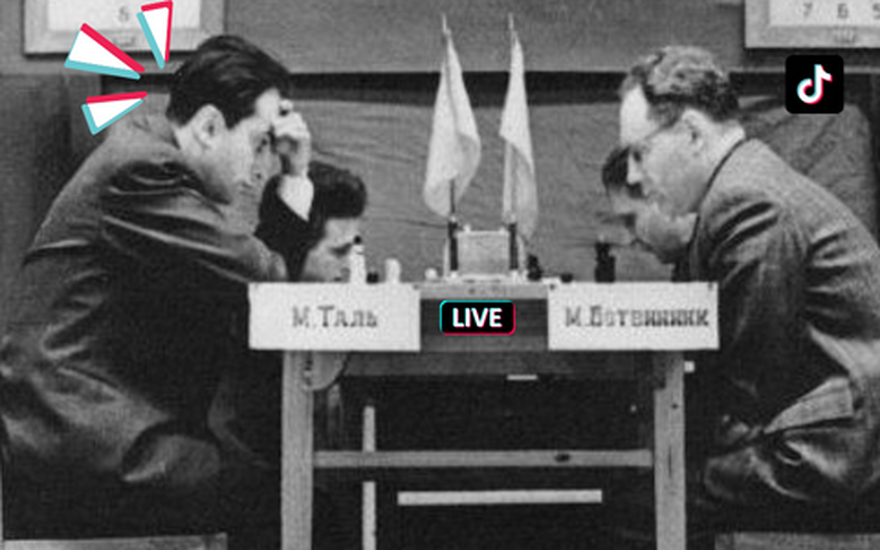
Are We Tiktokificating Chess?
Chess has been played for centuries and has always been regarded as a game that requires strategic thinking, concentration, and patience. However, the ongoing chess boom is changing the game. We are seeing a move towards shorter time controls and chess content in the chase of more views.The increasing presence of chess content on social media platforms like TikTok and YouTube Shorts introduces a new way of presenting the game. As 60-second clips can garner millions of views, it's worth questioning whether the depth and richness of chess remain intact or become compromised. The trend of "tiktokification" – compressing meaning into the shortest format possible – seems to at least challenge the foundations of the game.
For example, consider IM Levy Rozman's 53-second video explaining how to win at chess in just eight moves. Garnering over 9 million views on YouTube. Note how the video ends with a question, so you might end up in a loop.
Classical time controls, requiring hours of thought, are hard to distill into TikToks and Shorts. In mid-2021, internal data from TikTok that was given to creators said the optimal TikTok length was 11 to 17 seconds.
1 TikTok has shown that younger audiences prefer content that is fast-paced and entertaining.
Recently World Chess held an armageddon over-the-board tournament in Berlin in an attempt to ride the wave of short attention span and fast-paced action. The players were given no increments. At one point in the clip below several pieces are lying on the board while GM Andrew Tang and GM Leinier Dominguez are pressing the clock fiercely in order to not lose on time.
https://twitter.com/theworldchess/status/1633189003976384513?s=20
You might ask yourself after watching the clip. What is the point? Is this chess?
In a recent newsletter, I explored whether classical chess is gradually fading away or being actively killed off. 2 I believe that entities like Chess.com and Team Magnus are driving the transformation of chess into an increasingly rapid online game to promote its continued growth.
While the growth of chess is undoubtedly positive in terms of reaching new players and raising the game's profile, it also carries the risk of compromising its core values. Furthermore, if the driving force behind this growth is to generate profit for Chess.com, the implications may not be entirely positive. Classical chess tournaments require significant investments, including a playing hall, accommodations for players, and compensating commentators for lengthy broadcasts.
By having players compete from home and producing shorter broadcasts, Chess.com effectively cuts costs. It's known that Chess24 spent a significant amount on their tour, which had several in-person events, resulting in an unsustainable business model.
3 Chess.com's approach, on the other hand, lowers expenses, enabling them to provide a $2,000,000 prize fund for their tour.
With the move away from classical chess to accommodate the demands for entertainment and the transformation of chess into an Esport, we risk diluting the core values of the game. This transition could lead to a loss of tradition, a greater focus on entertainment rather than intellectual depth, and the erosion of values like sportsmanship and fair play.
Bestselling author of The Subtle Art of Not Giving a F*ck, Mark Manson, writes in a blog about how the ever-increasing competition for our eyeballs affects us:
“When everything is measured in terms of engagement, content will be optimized for addictiveness. Not entertainment or artistic merit. Not intellectual substance or creativity. Pure, plain addictiveness. That means we, the consumers, get a higher quantity of more predictable, less innovative, less interesting art in our lives [...] But ultimately, these systems are loose reflections of our own attention habits shining back at us. Change our attention, change the systems. There’s an old saying that people “vote with their feet.” Well, today you need to vote with your eyeballs and mouse clicks.”
— Mark Manson, Are You Entertained—Or Addicted?
By measuring the success of chess and the chess boom in views or profitability we will risk rewarding a transition towards a game that is ever more two-dimensional. In my opinion, chess can and should be a captivating deep game. Balancing the concerns mentioned with the potential benefits of modernizing chess will in my eyes be crucial to preserving the game.
As we consume chess content, we steer the game in the direction of our interests. If we want to promote events that emphasize the depth of chess, it's important to support them through our viewing habits.
If you're interested in keeping up with my chess writing, go to saychess.substack.com and join the conversation!
More blog posts by SayChessClassical
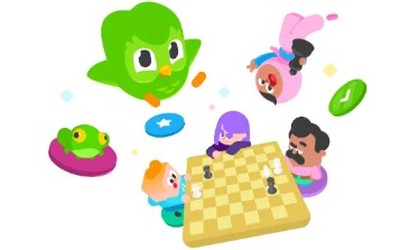
Are Online Chess Players Trapped Pigeons?
The Increasing Gamification of Online Chess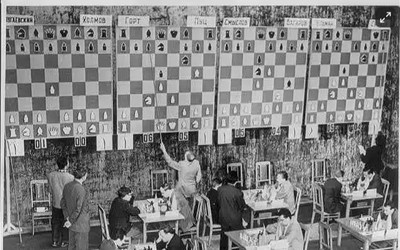
The Great Eval Bar Debate: Chess.com's Broadcasting Style
Should chess tournament broadcast feature an eval bar or not?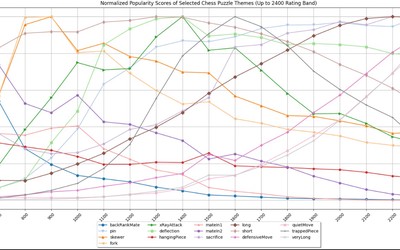
Normalized Popularity Scores of Selected Chess Puzzle Themes on Lichess
The other day I entered into a debate with GM Jacob Aagaard and IM Andras Toth on X about whether ta…